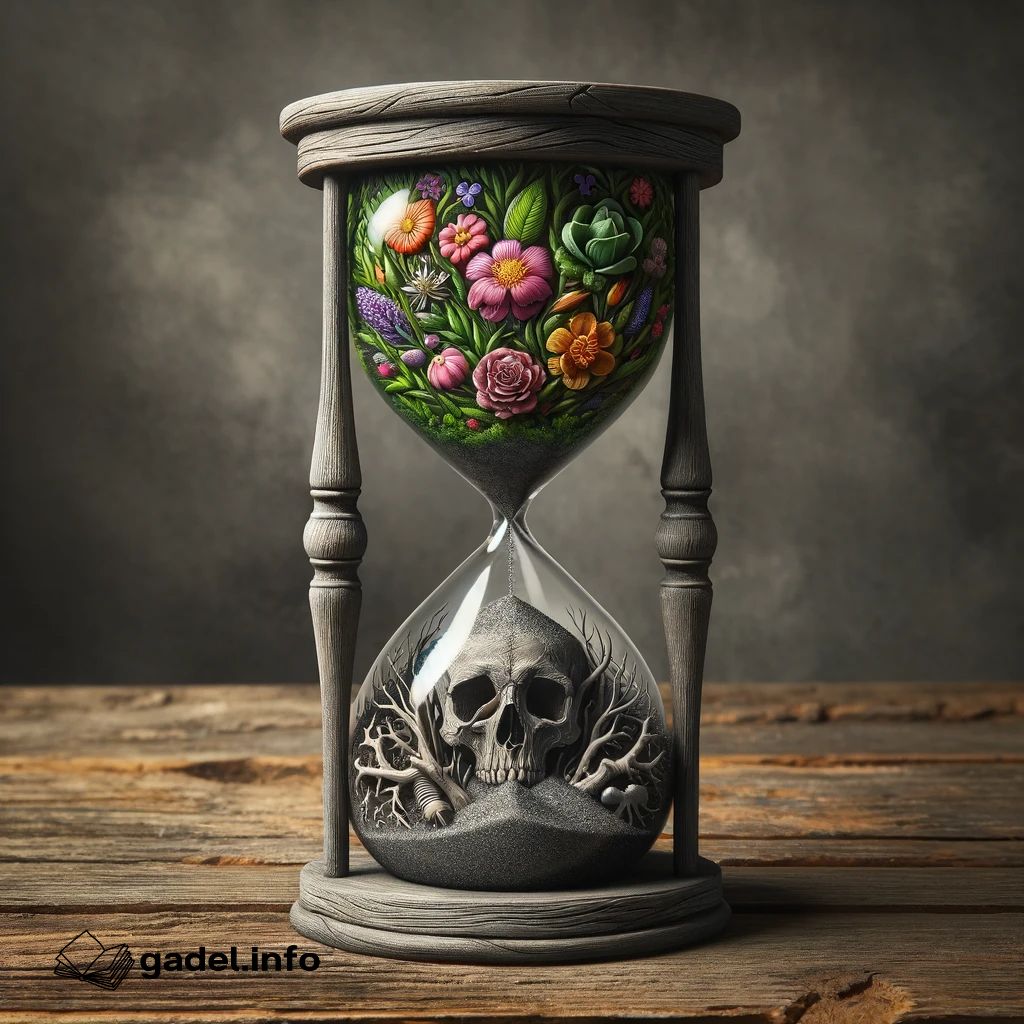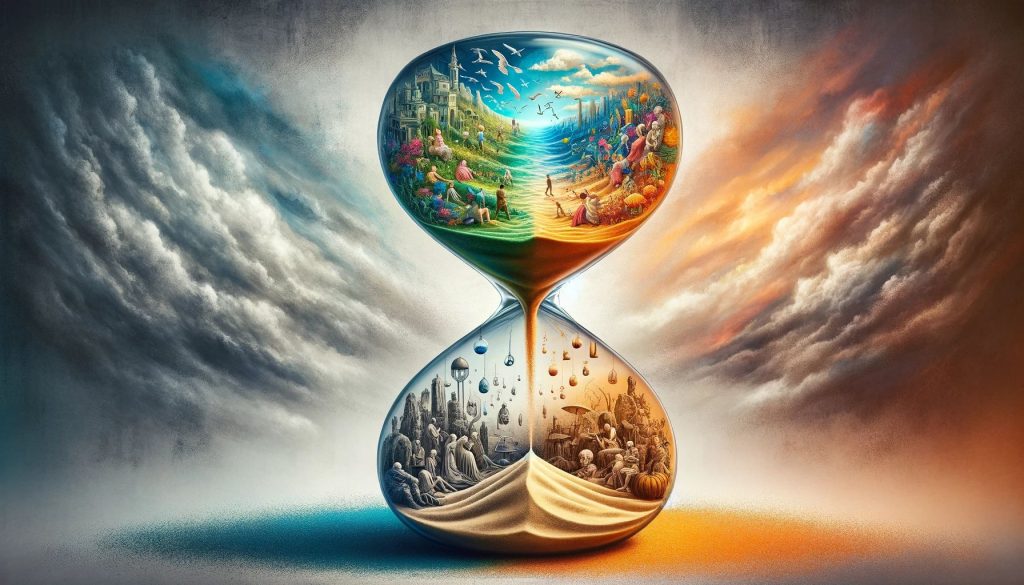
Every second someone somewhere breathes his or her last breath. Every heartbeat of yours is someone’s last. One day it will be yours or mine. Seek God. ~Godwin Delali Adadzie
Life is a journey filled with numerous uncertainties and challenges, and at times, it’s easy to lose sight of the bigger picture. In the words of Godwin Delali Adadzie, “Every second someone somewhere breathes his or her last breath. Every heartbeat of yours is someone’s last. One day it will be yours or mine. Seek God.”
The Inevitability of Mortality
“Every second someone somewhere breathes his or her last breath.” This poignant reminder by Godwin Delali Adadzie is a universal truth that binds all humanity. The inevitability of mortality is a theme that has occupied the minds of philosophers, poets, and prophets throughout the ages. We are all acutely aware, at least on a subconscious level, that our time on this earth is finite. Yet, it is often something we choose to ignore or push to the periphery of our daily consciousness. In contemporary society, where the emphasis is on the immediate and the material, the thought of our eventual demise is treated almost like an unwelcome guest at a party.
Despite its somber tone, the quote is not meant to invoke fear or sorrow. Instead, it serves as a clarion call to acknowledge the brevity of life. By doing so, we might learn to appreciate the present moment more — to live richer, fuller, and more intentional lives. This acknowledgment is not about dwelling on death but about embracing life with the awareness that our actions, our relationships, and our spirits are precious because they are not everlasting.
The Pulse of Existence
“Every heartbeat of yours is someone’s last.” This continuation of Adadzie’s reflection brings the abstract concept of mortality into a stark, visceral reality. Our heartbeats are the most fundamental sign of life, so ordinary and constant that we seldom give them a second thought. Yet, as the quote suggests, with every rhythmic beat that signifies our own life, another person’s rhythm comes to a stop. It’s a thought that can be as unsettling as it is enlightening, a reminder that life is a shared experience, even in its ending.
This shared rhythm of life and death connects us all. The heartbeat can be seen as a metaphor for the human condition, a symbol of the commonality of our experiences regardless of our differences. It’s a reminder that life is a gift — not just our own, but every life that pulses on this planet. The heartbeat is a universal drum, a pulse that binds us in the most fundamental way imaginable.
A Moment of Reflection
“One day it will be yours or mine.” With this simple statement, Adadzie invites us to a moment of reflection. It’s a humbling thought, isn’t it? This future — our last breath, our final heartbeat — is the one certainty we cannot escape. Such a reflection might initially evoke a sense of trepidation or even existential dread, but it also has the power to be incredibly liberating. If we accept that our time is limited, we may be more inclined to make decisions that are true to ourselves, to cherish the people around us, and to seek out the experiences that give our lives meaning and joy.
This moment of reflection is not meant to be morbid but rather an opportunity to assess the path we’re on. Are we leading lives that we will look back on with contentment? Are we procrastinating on dreams, waiting for a ‘someday’ that might never come? The acknowledgement of our mortality can be a powerful catalyst for change, a nudge to shift our priorities in favor of what truly matters.
The Quest for the Divine
“Seek God.” This simple yet profound advice takes the reflection on mortality to a spiritual dimension. For many, the God of the Bible represents not only the creator of life but also the ultimate comforter in the face of death. Seeking God can be interpreted in many ways: as a search for meaning, a pursuit of spiritual enlightenment, or the desire for a relationship with the divine. For believers, the concept of God brings a promise of eternal life, a life beyond the physical limitations of the world we know.
Seeking God in the context of our mortality brings a sense of peace and purpose. It’s a journey that goes beyond the quest for material success or temporary pleasures. Instead, it’s about cultivating a spiritual richness, aligning one’s life with higher principles, and nurturing the soul. For many, the process of seeking God is an ongoing journey, one that is filled with questions, doubts, and discoveries, but also with profound joy and the peace that surpasses all understanding.
Living with the End in Mind
It is a counterintuitive notion, but keeping the end in mind can lead to a more vibrant and purposeful life. This does not mean living in constant fear of death but rather using the knowledge of life’s impermanence as a guidepost for making life choices. When we live with the end in mind, we strip away the superfluous, the unnecessary, and the trivial. We become more focused on creating legacies, nurturing relationships, and making an impact.
Living with this perspective fosters gratitude for the present moment and encourages us to act with kindness and generosity. It can inspire us to forgive quickly, to speak truthfully, and to love deeply. After all, if we were to keep in our hearts the truth that every encounter could be our
last, would we not choose to be our best selves in each of them?
The Shared Human Experience
Every individual, no matter their culture, religion, or personal beliefs, must grapple with the reality of life’s transience. Adadzie’s quote transcends individual differences and touches on the shared human experience. Mortality is one of the few constants in the human condition, and it is something that connects us all. It’s an experience that does not discriminate — every person must face it, from kings to paupers, from the skeptic to the devout.
Recognizing that we are part of this shared human experience can lead to a greater sense of empathy and connection with others. We all share the same fate, and this realization can bring down walls, fostering a sense of solidarity and shared humanity. It can inspire us to reach out, to support, and to understand, because in the end, we are all on this journey together.
Conclusion: The Heartbeat of Humanity
In the end, Adadzie’s quote is a meditation on the human condition, a reflection on the brevity of life, and an exhortation to seek something greater than ourselves. It serves as a reminder that life is not just about the pursuit of personal gain but about the search for meaning and connection. Each heartbeat is a precious rhythm in the symphony of humanity, and each life is a unique melody that contributes to the whole.
Seeking God, or seeking a greater purpose, in the face of our mortality can transform the way we live. It can turn every moment into a treasure, every relationship into a sacred connection, and every action into a meaningful pursuit. In this way, perhaps the most profound truth is that in seeking to understand our end, we actually find a new beginning — a way to live our lives with intention, with love, and with a sense of the divine that elevates every fleeting second we have.

